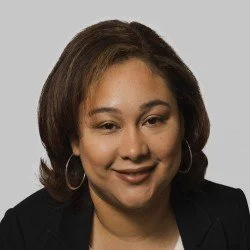How to Become a Mortgage Processor or Mortgage Underwriter
Written By: Joel Palmer, Op-Ed Writer
A number of professionals have found themselves unemployed because of the COVID-19 pandemic.
One of the best ways to get back to work is to find a profession in demand.
After a brief drop off immediately after the pandemic started, the mortgage industry has been in high demand.
During the second quarter, there were $846 billion in new mortgage originations that appeared on credit reports. This includes purchase and refinances. The New York Fed report stated that this was the highest quarter volume since the refinance boom in 2013.
One job in demand is for mortgage loan processors. This is the individual who processes mortgage applications and gathers the necessary documentation. This information is organized and passed along to an underwriter.
Processors also ensure that lending guidelines are followed. They also communicate with title companies, county clerks, attorneys and other professionals.
While some employers prefer a bachelor’s degree in accounting or finance, you may be able to work as a mortgage processor with only a high school diploma. There are also certificate programs available.
The key skills needed for mortgage loan processing are organization, communication and data entry.
Mortgage processors can earn between $39,000 to $81,000 annually.
The National Association of Mortgage Processors® (NAMP®) offers professional development residential and commercial mortgage processing certification programs for aspiring loan processors nationwide. Learn how to become a certified loan processor, and you'll discover how a loan processor certification program can help to advance your career in mortgage loan processing.
Mortgage professionals with the NAMP® Certification may increase their odds of getting interviews and qualify for higher level job opportunities.
Another in-demand position is for mortgage underwriters.
Underwriters evaluate loan applications to maximize profit and minimize risk. They are essentially the people who approve or deny or a mortgage loan. They do this by reviewing documents such as credit reports, income statements, and tax returns. They also evaluate the property for which the mortgage is being applied.
Employers typically require a bachelor’s degree for underwriters in business for finance. Those who get into commercial mortgages must understand and analyze business finances, therefore the underwriter should understand general business accounting.
It is possible to become an underwriter without a college degree if the applicant has related work experience, such as sales, customer service, banking or real estate.
All mortgage underwriters must be licensed in the state in which they work. The Nationwide Multistate Licensing System (NMLS) is the sole system of licensure for mortgage companies for 58 state agencies.
Aspiring underwriters should possess decision-making skills, math and critical thinking skills and the ability to use software programs for accounting, financial analysis, document management and content workflow.
The average salary for mortgage underwriters is $57,000 a year.
The National Association of Mortgage Underwriters® (NAMU®) has offers professional development residential and commercial mortgage underwriting training and certification programs that demonstrate competency and a thorough knowledge of the mortgage loan underwriting process as it relates to mortgage finance.
Professionals with the NAMU® Certification may increase their odds of getting interviews and qualify for higher level job opportunities.
About the Author
As an NAMP® Opinion Editorial Contributor, Joel Palmer is a freelance writer who spent 10 years as a business and financial reporter and another 10 years in marketing for the insurance and financial services industries. He regularly writes about the mortgage industry, as well as residential and commercial real estate, investments, and retirement income planning. He has also ghostwritten books on starting a business, marketing, and retirement income planning.



































